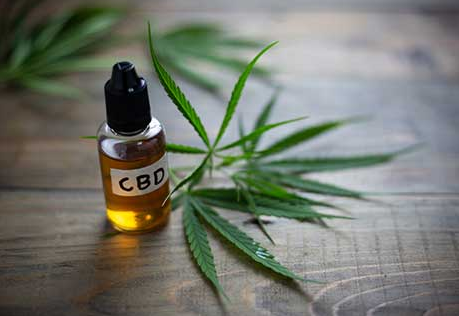The CBD medical abbreviation is just one of many acronyms found within the cannabis industry. If you’re uncertain what these terms signify, we’ve put together this quick reference guide to help clarify their significance.
CBD, a non-euphoriant constituent of cannabis plants, may be used to treat certain diseases and conditions
Corticobasal degeneration
Corticobasal degeneration is a rare disorder of the brain and cortical areas (parts that control movement). This condition develops due to an accumulation of tau protein in these areas.
Corticobasal degeneration occurs gradually and may manifest as difficulty with movement, language, thinking or both.
They may begin with stiffness or tremors in one arm or leg. They may also present with abnormal postures of the limbs and neck, pain in the affected hand or leg, as well as muscle jerks known as myoclonus.
Some patients experience cognitive symptoms, such as difficulty learning purposeful movements and the sensation that their hand or limb is “alien” or has its own mind. They may also have aphasia, language issues or visual-spatial impairments.
CBD, a chemical found in cannabis plants that lacks the psychoactive effects of its main ingredient tetrahydrocannabinol (THC), has medical applications and may help treat various health conditions.
It has no harmful side effects and does not produce a euphoric or hallucinogenic high. Furthermore, its legal to use in many states.
There are various products containing CBD, such as oils, extracts, capsules, patches and vapes. Some can be absorbed directly into the bloodstream while others must be taken orally.
CBD is a nutrient
CBD has been scientifically proven to benefit a variety of health conditions, such as cancer, chronic pain and addiction. Some studies suggest it may even reduce anxiety levels and curb cravings for tobacco or heroin.
CBD comes in many forms, from tinctures and oils to patches and vapes. Topical preparations seem to be the most efficient for most users.
Studies have suggested that CBD may help with chronic pain, but more research is necessary. Furthermore, it remains uncertain how high of a dose of CBD is required for effective relief.
CBD is a psychiatric drug
CBD, a chemical found in cannabis, has been demonstrated to have beneficial effects on pain, muscle spasticity, chemotherapy-induced nausea and vomiting, and epilepsy. It’s also being researched for its potential to alleviate symptoms of depression and anxiety.
Though CBD is generally safe, it may interact with other drugs in your system and lead to side effects like nausea, fatigue and irritability.
Additionally, there has been evidence of an increased risk of liver damage due to the compound competing with enzymes that break down drugs like acetaminophen (Tylenol).
CBD is a drug
CBD is an antidepressant drug that may help people manage chronic pain, anxiety and psychiatric disorders. It has also been known to treat certain cancers and enhance the immune system’s response to chemotherapy treatment.
However, CBD is unregulated by any government agency and the Food and Drug Administration (FDA) has yet to approve any CBD products.
Epidiolex has been approved by the FDA for treating two rare forms of epilepsy. They also approve drugs containing other cannabinoids such as dronabinol and nabilone.
However, as with any drug treatment, there can be risks. CBD may increase levels of certain drugs in your bloodstream by competing with liver enzymes responsible for breaking them down, potentially leading to an adverse reaction. Therefore, it’s important to inform your doctor if you take CBD regularly as well as any other medications you might be taking.



















